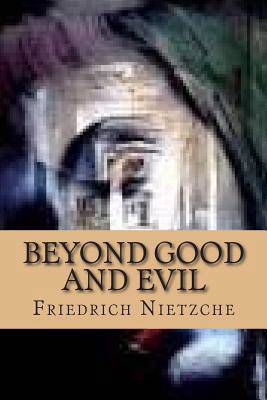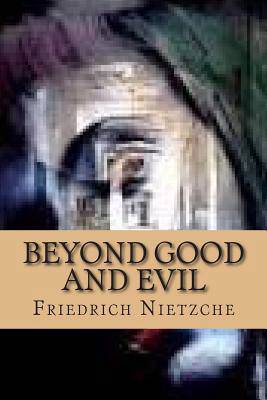
Door een staking bij bpost kan je online bestelling op dit moment iets langer onderweg zijn dan voorzien. Dringend iets nodig? Onze winkels ontvangen jou met open armen!
- Afhalen na 1 uur in een winkel met voorraad
- Gratis thuislevering in België vanaf € 30
- Ruim aanbod met 7 miljoen producten
Door een staking bij bpost kan je online bestelling op dit moment iets langer onderweg zijn dan voorzien. Dringend iets nodig? Onze winkels ontvangen jou met open armen!
- Afhalen na 1 uur in een winkel met voorraad
- Gratis thuislevering in België vanaf € 30
- Ruim aanbod met 7 miljoen producten
Zoeken
Omschrijving
Summary Nietzsche opens with the provocative question, "Supposing truth is a woman-what then?" Then truth would need to be cajoled and flattered, not pursued with the tactless dogmatism of most philosophers. While philosophy must overcome its dogmatic thinking, it has at least provided our culture with the tension to spring forward into something new and better. Nietzsche catalogs a number of the dogmatisms inherent in philosophy, such as the separation of ideas into binary opposites like truth and falsehood; "immediate certainties," like Descartes' certainty that he is thinking; and the idea of free will. Philosophy is interested in giving us insight not into truth but into the minds of the different philosophers. Everything is governed by a will to power, and in philosophy, we see great minds trying to impose their will on the world by persuading others to see the world as they see it. The will to power is the fundamental drive in the universe. Behind truth, thought, and morality lie drives and passions that we try to mask behind a veneer of calm objectivity. What we call truth, for instance, is just the expression of our will to power, where we declare our particular perspective on reality to be objectively and universally true. Ultimately, all reality is best understood in terms of competing wills. Nietzsche praises "free spirits" who struggle to free themselves from the prejudices of others and to question their own assumptions. In particular, they will look beneath the "moral" worldview that examines people's motives and perceive instead the "extra-moral" worldview that examines the unconscious drives that determine our expressed motives.
Specificaties
Betrokkenen
- Auteur(s):
- Uitgeverij:
Inhoud
- Aantal bladzijden:
- 178
- Taal:
- Engels
Eigenschappen
- Productcode (EAN):
- 9781500800390
- Verschijningsdatum:
- 11/08/2014
- Uitvoering:
- Paperback
- Formaat:
- Trade paperback (VS)
- Afmetingen:
- 152 mm x 229 mm
- Gewicht:
- 244 g

Alleen bij Standaard Boekhandel
+ 69 punten op je klantenkaart van Standaard Boekhandel
Beoordelingen
We publiceren alleen reviews die voldoen aan de voorwaarden voor reviews. Bekijk onze voorwaarden voor reviews.











